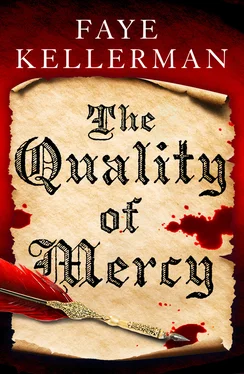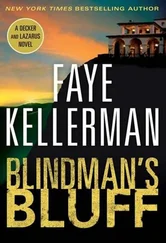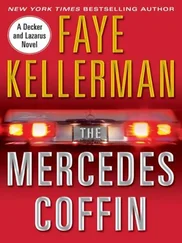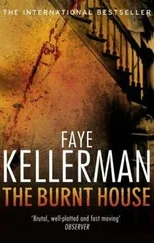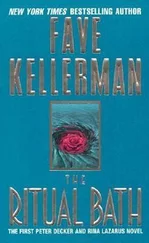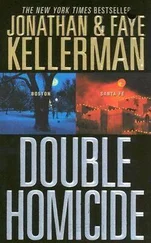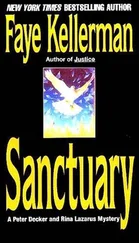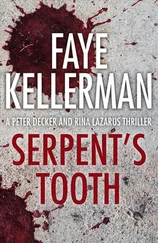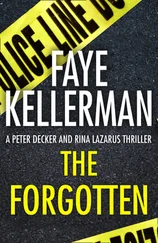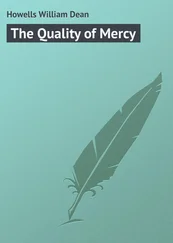“A crown, nay,” said the cripple. “But I’ll trade you a shilling for it.”
“You said it is but a toy,” Mudd said, confused. “Yet you offer me a shilling?”
“Aye … It strikes my fancy,” the cripple replied.
“I shall give you two shillings,” the gallant countered, shaking off the arm of the cripple.
Clubfoot became angry.
“He tries to cheat you,” he said. “I shall give you four shillings.”
“This lame jack is a scoundrel,” the gallant retorted. “Five.”
Mudd stared at Clubfoot. It was now his turn to up the auction.
“Five is too grand a price for me,” the cripple said. “I have only four shillings, twopence in my doublet.”
“I will give you five shillings for that trinket, sir,” the gallant cried.
“Aye, take it for five shillings.” Mudd shrugged, giving him a vacant smile. He held out the spoon, then swiftly retracted it. “You’d not be cheating would you?”
“Nay, good sir, never!” the gallant insisted. “The trinket is … for my wife. She is fond of such toys.”
The cripple said, “Sir, I suggest you take it to a goldsmith. I suspect it could be valuable.”
The knight glared at him.
Mudd pondered the suggestion, then threw up his arms. “Who has the time for such tomfoolery?” he said. “Tis but a toy to me, and five shillings is five shillings. If you want it for five shillings, I’ll strike a bargain with you.”
“Done,” the gallant said. He quickly handed Mudd the coins and snatched the spoon from his hands.
“He has cozened you,” the clubfoot announced.
“Out of here, you lame fool,” the knight yelled.
“Bah!” said the cripple. “Drunken dolt.”
“Pay him no attention,” the gallant said after Clubfoot left. “Perhaps this chance meeting, dear sir, will bring us sweet fortune.”
“Aye, good luck indeed, indeed,” Mudd said. He smiled an idiot’s grin.
He tottered away. When safely out of sight, he laughed. Five shillings! So much more than he had hoped for. He opened his jerkin and felt inside his pockets. There were four of them left—four small, wrapped packages of “valuables”—dross metal spoons covered with gold paint. At five shillings apiece, he’d walk away with a goodly bung—a purse full of gold. A sweet evening it was proving itself to be.
Aye, plenty of coins for Master Mackering, and perhaps a groat or two for dicing—ifin he could filch the money without the master knowing it. Marry, Mackering had eyes in the back of his head—always seemed to know which of his men was stealing from him. Dangerous it was to cheat the master.
Mudd felt in his other pocket for the pint of spirits. A necessity—a goodly bribe that caused the head of the watchman to turn in the other direction. Whittled cows, the watchmen were—all of them. In case the booze was less than persuasive, the dagger hidden in the waistband of his galley slops would convince the most mulish of constables to get him hence.
Walking a few more blocks, Mudd heard raucous laughter coming from the inside of another alehouse—the Greenhouse Inn. He stopped. Hidden by shadows, he peered through the red lattice of the inn’s window. Twas a bonny tavern that would serve his purposes well, populated with a merry crowd sated to the gills. It wouldn’t take long before another coney was caught. Aye, lots of money to be made this night. Mudd leaned against the building, a smirk on his lips.
And he waited.
Chapter 12 Chapter 12 Chapter 13 Chapter 14 Chapter 15 Chapter 16 Chapter 17 Chapter 18 Chapter 19 Chapter 20 Chapter 21 Chapter 22 Chapter 23 Chapter 24 Chapter 25 Chapter 26 Chapter 27 Chapter 28 Chapter 29 Chapter 30 Chapter 31 Chapter 32 Chapter 33 Chapter 34 Chapter 35 Chapter 36 Chapter 37 Chapter 38 Chapter 39 Chapter 40 Chapter 41 Chapter 42 Chapter 43 Chapter 44 Chapter 45 Chapter 46 Chapter 47 Chapter 48 Chapter 49 Chapter 50 Chapter 51 Chapter 52 Chapter 53 Chapter 54 Chapter 55 Chapter 56 Chapter 57 Chapter 58 Chapter 59 Chapter 60 Chapter 61 Chapter 62 Chapter 63 Historical Summary Keep Reading About the Author Faye Kellerman booklist About the Publisher
The stink of tallow.
Shakespeare’s head felt leaden, his body thick with sleep. Unsure of the hour, he wondered if dawn had awakened from her cyclical slumber. Was he dreaming?
He drifted back into sleep, dreamt of demons prancing around the maypole. They had piggish bodies, forked tails, black eyes, and wore black hoods. Fire sparked from their mouths and nostrils as they hissed like snakes.
But Mayday had passed a week ago with no such demons at all. Bonfires all night. London’s revels lasting until dawn.
No black demons.
Or had they been there without him noticing?
Again the stench of burning fat assaulted Shakespeare’s nostrils.
He opened his eyes.
Dark, damp, and cold.
Slumped over his writing table, his folded arms a pillow for his cheeks, he realized he had fallen asleep while working, as he had so many times in the past. Had he been asleep for a minute? An hour?
He raised his head, saw sparkling points of golden light. He stared at the flickering wick, at the shadows leaping off of the walls as if engaged in his dream’s ritual maypole dance. Nocturnal creatures. His quill lay atop the foul papers of his latest playbook, bleeding ink over the stage directions.
Damn his carelessness! Now he’d have to rewrite the page.
The garlic mutton he’d eaten for supper that night lay like stone in his stomach. His mouth felt dry and numb. He ran his tongue over his lips and stared at the goblet of sack resting a foot away from his hand. Slowly, he extended his arm and clasped the stem of the cup. Raising his lips to the edge of the vessel, he took a small sip; the act of drinking seemed to tire him further. He lowered his head back into the cradle of his arms, but kept his eyes open.
The room suddenly became dark. But not dark.
Shakespeare felt his heart beat rapidly, his body wet with icy sweat.
Another shadow—much bigger and darker. It seemed to blacken the room. It loomed over him, then was silhouetted by the glow of candlelight in witches’ colors.
Shakespeare’s mind was a swarm of loose thoughts.
Black and orange. Orange and black.
Incarnate of evil from doggish pack.
What wolfish scheme hast thou conspired
that pricks my skin and sets it afire?
“Who are you?” he asked.
No answer.
“Are you touchable?” He extended his hand outward and sliced through air. “Surely I am dreaming. My eyes deceive my wits.”
“We have met,” said a voice. Deep, guttural. A voice like none he’d ever heard. Or had he?
Shakespeare began to tremble.
“I ask you again, sir. Who are you?”
The voice answered:
“The specter that is to thee nearest
is one thou holds so very dearest.
He comes to give thee counsel wise
to rid thee of the filthy lies
that thou hast heard with thine own ears,
inflicting wounds unto thy peer.”
“Harry?” Shakespeare asked in a whisper.
The apparition said:
“My love for thee was never ending,
not as a sapling, ever bending
in a tempest of rumors thick and deep
that makest me moan, alas, cry and weep.”
“Harry,” Shakespeare repeated. “Thou art an illusion. I hear, yet I hear nothing. Thou art whirls of imagination brought upon by overwrought nights of too much toil.”
“Nay, tis not so,” the voice protested. “I am the ghost of thy mentor—thy fellow—Harry Whitman.”
Shakespeare shook fiercely.
Читать дальше
